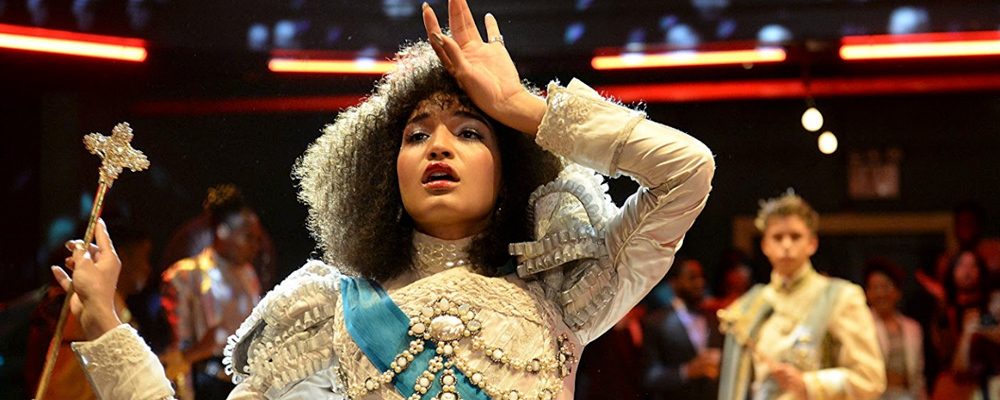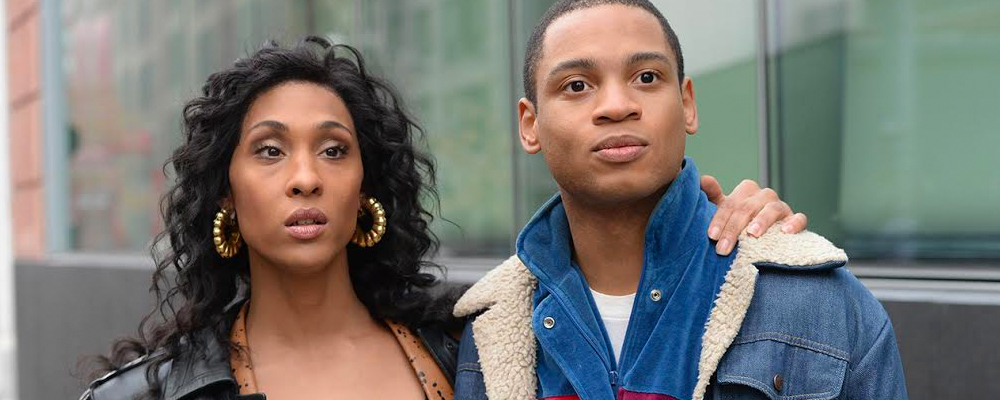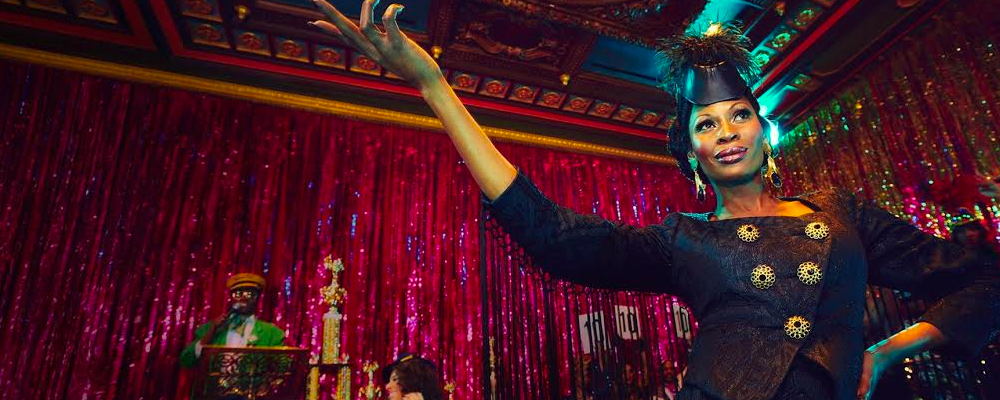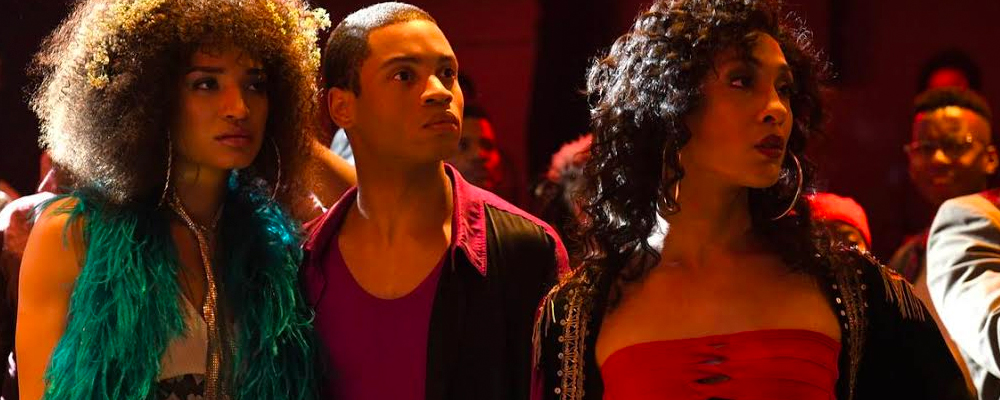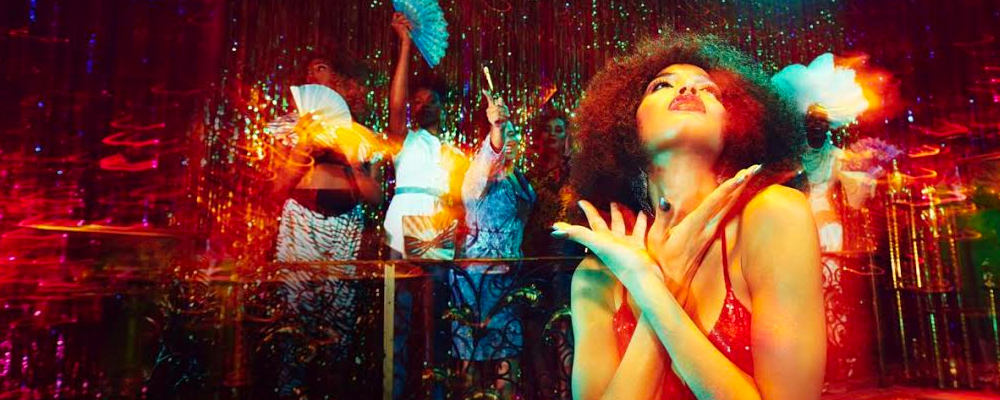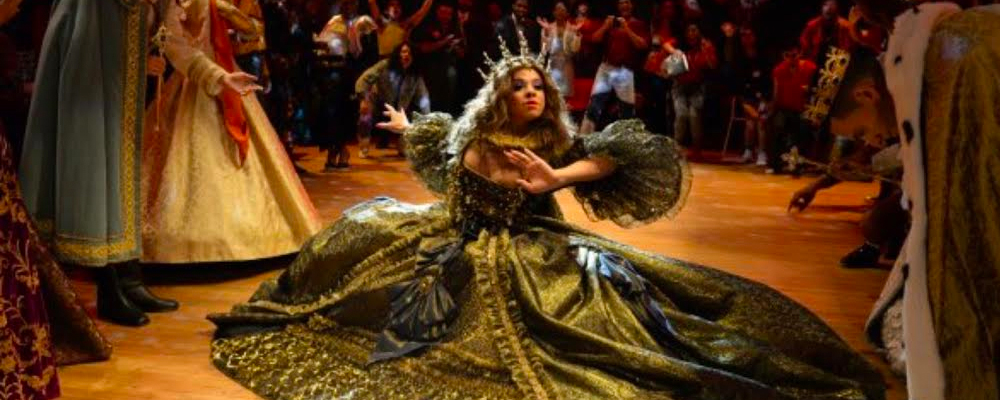FX’s ‘Pose’ Bursts With Energy as It Celebrates ’80s NYC LGBTQ Culture
Alci Rengifo
Aflame with color and deep emotions, “Pose” brings to life the nightlife of 1980s New York ballroom culture with zest and drama. FX once again proves it is at the forefront of the best shows in television, daring to present underrepresented themes with dynamic creativity. The series premiere of “Pose” features exhilarating moments, endearing characters and a keen sense of time and place. But at its core this is a drama about acceptance and the battle to simply live. For creator Ryan Murphy this is yet another hit, but richer and more profound than his “American Horror Story” or “Glee.” It is also making history as the show with the largest cast of transgender actors in a regular series, while set in the African American community. It tells its enrapturing story with a voice demanding tolerance and humanity.
It is 1987, Ronald Reagan is president, the AIDS epidemic is on the rise and Donald Trump is at the dawn of his celebrity. We are taken right into the “ballroom” scene where the marginalized LGBTQ community celebrates a series of catwalk showdowns involving various “houses,” meaning clans of dancers and talented showstoppers who strut and pose before a panel of judges. The awarded trophies come with no monetary value, only the dignity in excelling and making one’s name admired. The dominating House of Abundance, run by the charismatic Elektra (Dominique Jackson), is so determined to maintain its throne that Elektra doesn’t shy from leading her posse on a raid to steal museum pieces to show off in the ballroom. But when a member of her house, Blanca (MJ Rodriguez), discovers she is HIV positive, she decides it is time to make her own legacy and leaves House of Abundance to form her own group. She soon meets Damon (Ryan Jamaal Swain), an aspiring dancer kicked out of his home when his parents find out he’s gay. Blanca immediately recognizes Damon’s talent and brings him into her home. Now the real work begins as Blanca plans her upcoming showdown with Elektra on the ballroom floor.
“Pose” comes to life with a gallery of well-written characters who each vibrate with their own backstories and private pains. Brilliantly acted, with a combination of cabaret verve and Shakespearean tragedy, their glamorous personas hide very human experiences. One of the most effective members of Blanca’s house is Angel (Indya Moore), a trans woman who does sex work to get by. She is picked up by Stan (Evan Peters), a businessman who is on the rise at Trump Tower (yes, that tower), who also happens to be married but is feeling the itch to try other forms of intimacy. This plotline develops into a rather moving, evocative tragic romance, as Stan begins to develop real feelings for Angel by the end of the pilot, seeing her mirage at an expensive dining spot while dancing with his clueless wife, Patty (Kate Mara). When Stan kisses Angel after their first outing, it is scored to Kate Bush’s “Running Up That Hill (A Deal with God).” The timing and set-up of the scene give the song a new identity, transforming it into an anthem of tender aching. Blanca and Damon build a special chemistry based on their own experiences, Damon having been kicked out of his house for being gay and Blanca being banished by her own family for being trans.
With dashes of satire “Pose” also serves as a commentary on the finer forms of American prejudice and corporate culture. Angel is gorgeous, but she can’t get a job at a Trump Tower boutique. Stan’s corporate alpha male boss Matt (James Van Der Beek), gleefully snorts cocaine off a mirror in his office while singing praises to Reagan and Trump. This was the era when the Donald was beginning to define the 80’s ideal of the all glorious CEO. The feverishly bohemian world of the ballroom feels like clandestine Bob Fosse. The trans and queer community celebrates itself in this fashion because in the 1980s it was not as safe or socially acceptable to live openly, forcing individuals to simply live as they are in clandestine revelry. But this gives the ballroom scenes an atmospheric, intriguing air. In the pilot we see the ballroom hosting various evenings celebrating formal wear, office fashion and even military uniforms. The show is bold in setting such a story within a minority community, addressing the lingering issues surrounding LGBTQ tolerance in African American and Latino communities.
But “Pose” is worth watching above all because it is a great television experience. Its look and pacing are a form of TV reverie, as we are swept up by the visual exuberance and dynamic performances. The opening heist is scored to Mary Jane Girls’ “In My House,” Damon auditions for a dancing school at Blanca’s urging with a wildly free performance to Whitney Houston’s “I Wanna Dance With Somebody.” The scenes in the ballroom explode with wondrous color before contrasting with the colder, real world of New York. A major notable in the cast is Billy Porter, who is a fantastic scene stealer as Pray Tell, an aspiring designer and host of the ballroom, providing a cabaret-style spirit to the proceedings. Dominique Jackson’s Elektra is overpowering style, able to freeze opponents with a single gaze. For Ryan Jamaal Swain and MJ Rodriguez this show is a revelation, as they find a balance between humor and scarred memories.
Sit back and enjoy “Pose” for its unique combination of style and substance. It is a show with important things to say, but within a narrative driven by grand emotions, great music and the joy of finding oneself in the things we love. It also taps into a very universal, human zone. Some things transcend our artificial borders, such as big dreams and lonely hearts.
“Pose” season one premiered June 3 and airs Sundays at 9 p.m. ET on FX.

